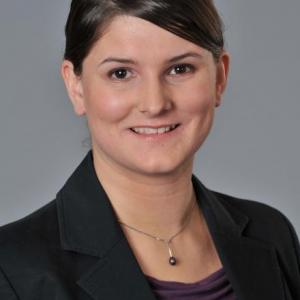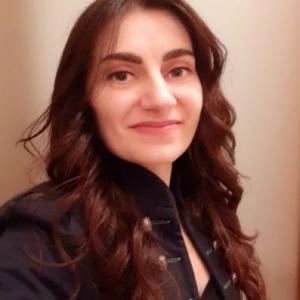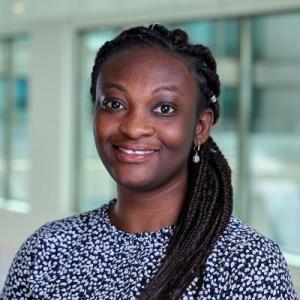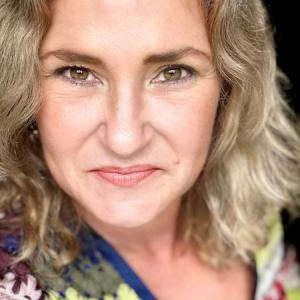Short description:
Yang Han is a DPhil candidate in International Relations and a Swire Scholar. Her doctoral research focuses on contemporary China-Africa relations, exploring China’s outlook on international hierarchies through its discourse on Africa with a particular focus on the intersections of race, class and gender. Yang holds an MSc degree in International Relations Research from LSE, as well as a BA in International Politics and a BSc in Psychology from Peking University.
Yang works for UNIDO as a gender mainstreaming expert.
Short description:
Dr. Inga Winkler is an Associate Professor in International Human Rights Law at the Central European University in Vienna, Austria. She takes a socio-legal approach to her research, which focuses on socio-economic rights, gender justice and sustainable development. Her work bridges institutional protection and socio-cultural dimensions of human rights, global policy and grassroots movements, and critical reflection and practical application. Issues that are considered taboo, in particular sanitation and menstruation, have piqued her interest. Her policy experience has allowed her to follow discussions at various levels from global processes to local challenges which enables her to link research, advocacy and policy-influencing. Current research projects address menstruation through various angles, the human right to sanitation, and the UN Special Procedures.
Her books include the first comprehensive monograph on the human right to water, the Handbook on Critical Menstruation Studies, and an edited volume on the Sustainable Development Goals. Her articles have appeared in the Journal of Human Rights, the Journal of Human Development and Capabilities, Sexual and Reproductive Health Matters, Culture, Health & Sexuality, among others.
Inga is the founder and co-director of the Working Group on Menstrual Health & Gender Justice and the co-chair of the University Seminar on Menstruation & Society at Columbia University. She is affiliated faculty in the Economic and Social Rights Working Group at the Human Rights Institute at the University of Connecticut, and the Center on Law and Social Transformation at the University of Bergen, Norway. Previously, she was a lecturer at the Institute for the Study of Human Rights at Columbia University, where she taught in the interdisciplinary, social sciences-based program. She was also a visiting scholar at the Center for Human Rights and Global Justice at NYU, at Stellenbosch University in South Africa, and at UC Berkeley.
Inga served as the Legal Adviser to the UN Special Rapporteur on the Human Rights to Water and Sanitation, Catarina de Albuquerque, who was appointed by the UN Human Rights Council. She has also consulted for various international organizations and NGOs including the European Parliament; the Food and Agriculture Organization of the United Nations; the Global Initiative for Economic, Social and Cultural Rights; the United Nations Development Programme; the Centre on Housing Rights and Evictions; WaterAid; the Deutsche Gesellschaft für Internationale Zusammenarbeit (GIZ); and the Water Supply and Sanitation Collaborative Council (WSSCC). Inga holds a German law degree and a doctorate in international human rights law (summa cum laude).
Short description:
Dr. Shilan Fuad Hussain is a Marie Curie Postdoctoral Fellow (UK). She is researcher & analyst in Socio-Cultural Studies, expert in Cultural Analysis and Gender Studies. She is an interdisciplinary academic and works on a variety of topics such as Gender, Political Violence and Diaspora. Her current work sits at the intersection of sociology and cultural analysis, and its symbiotic relevance to modern society.
Short description:
Dr Kate Orkin is a faculty member at the Blavatnik School of Government at the University of Oxford. She is an applied microeconomist, working in behavioural, labour and development economics. She mainly runs large field experiments in Kenya, Ethiopia, Uganda and South Africa, developing and testing real-world interventions in partnership with governments and NGOs. Much of Kate's research focuses on how to design social protection and active labour markets interventions to improve employment and earnings for the poorest people in developing countries. One current project, in collaboration with the NGO GiveDirectly, studies how to design large-scale cash transfer schemes to increase the productivity of beneficiaries' work. Another examines if improving the information available to the labour market improves matches between firms and workers and how this affects firms' and workers' outcomes.
Short description:
I apply both quantitative and qualitative methods to address various topics in the political economy of institutions and development. Broadly speaking, I am interested in unpacking the institutional and policy foundations of nation-state building and socio-economic development in multi-ethnic societies.






